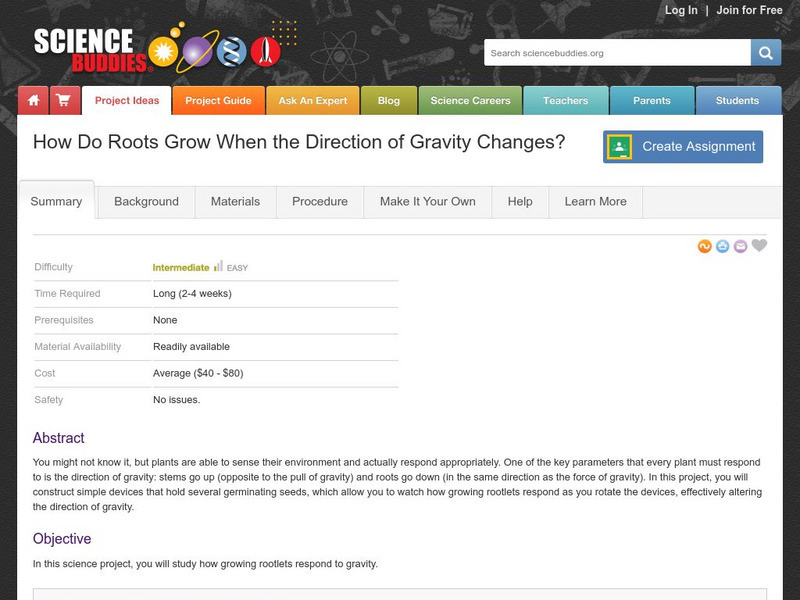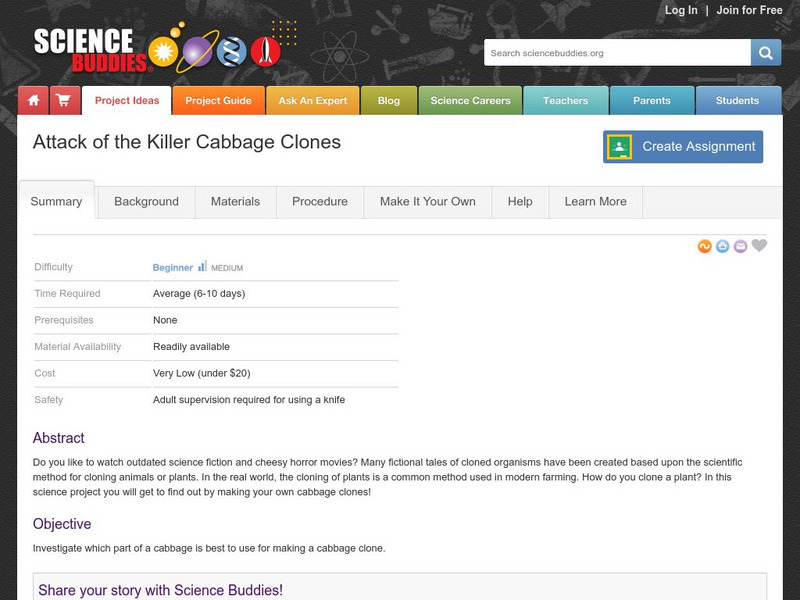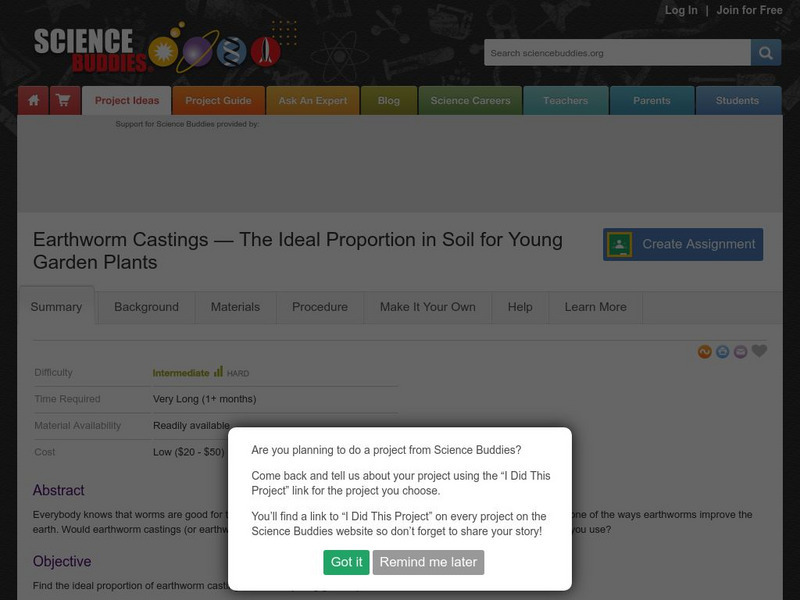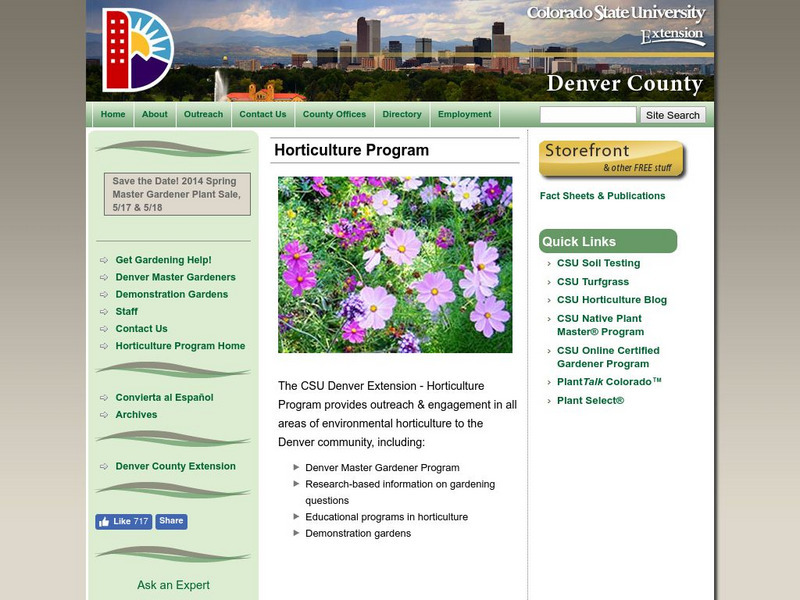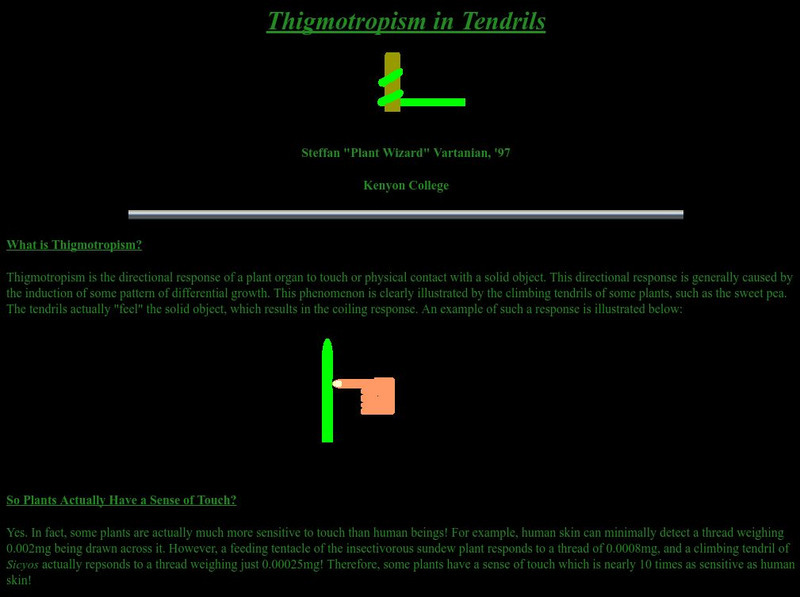Science Buddies
Science Buddies: How Do Roots Grow When the Direction of Gravity Changes?
You might not know it, but plants are able to sense their environment and actually respond appropriately. One of the key parameters that every plant must respond to is the direction of gravity: stems go up (opposite to the pull of...
Science Buddies
Science Buddies: Vines & Spines: Thigmotropism in Morning Glory Tendrils
We tend to think of plants as immobile, but the tendrils of a vine, such as the morning glory, actually move in response to touch. Tendrils wrap around structures, which give the plant something to grow on. In this science fair project,...
Science Buddies
Science Buddies: Leaves and Light
Leaves use sunlight to make food for the plant. Sunlight contains all of the colors of the rainbow, but are all of those colors used by the leaf? Can you find out if some colors of light are more important than others?
Science Buddies
Science Buddies: Attack of the Killer Cabbage Clones
Do you like to watch outdated science fiction and cheesy horror movies? Many fictional tales of cloned organisms have been created based upon the scientific method for cloning animals or plants. In the real world, the cloning of plants...
Science Buddies
Science Buddies: Earthworm Castings: Soil for Young Garden Plants
Everybody knows that worms are good for the soil, but not everybody knows why. Here's a project that investigates just one of the ways earthworms improve the earth.
Science Buddies
Science Buddies: Weeds Be Gone! Experiment That Affect Roundup Weed Killer
Experiment with factors that affect the activity of the weed killer Roundup. The Science Buddies project ideas are set up consistently beginning with an abstract, objective, and introduction, followed by a section on terms, concepts, and...
Science Buddies
Science Buddies: Humic Acid and the Optimum Soil for Plants
Humic acid is touted as an organic soil additive to improve plant growth by multiple means. Does it really work? Here's how you can find out.
BiologyWise
Biology Wise: Simple Steps on How to Build a Plant Cell Model
Describes the steps in how to make a model of a plant cell using simple materials and sweet foods like jello and candy.
BiologyWise
Biology Wise: Tips on How to Make a Plant Cell Model
Describes the steps for making a model of a plant cell in two different ways. The first way uses mostly sweet foods and the second way uses a shoebox, clay, and simple materials.
Science Buddies
Science Buddies: Growing, Growing, Gone! An Experiment on Nitrogen Fertilizers
Plants need nitrogen to build proteins and nucleic acids to grow healthy stems and leaves. Though the Earth's atmosphere is made up of 79% nitrogen, the form of nitrogen found in the atmosphere cannot be used by plants. In this...
BiologyWise
Biology Wise: Tips on How to Make a 3 D Plant Cell Model
Describes the steps in how to make a model of a plant cell using clay and simple materials found at home. Suggestions for variations are also given.
Science Buddies
Science Buddies: Plants Are on the Move! A Study of Gravitropism
As we humans zip from place to place, we often forget to stop and smell the roses. Compared to our fast-paced lifestyle, plants seem rooted to the spot. Don't be deceived by appearances however, plants are on the move. This experiment...
Science Buddies
Science Buddies: Nitrogen Fixing Bacteria and Nitrogen Fertilizers
Plants need nitrogen to build proteins and nucleic acids to grow healthy stems and leaves. Though the Earth's atmosphere is made up of 79% nitrogen, the form of nitrogen found in the atmosphere cannot be used by plants. In this...
Science Buddies
Science Buddies: Do Potatoes Regulate the Formation of New Roots?
Propagate potatoes by giving it the right environment for the eyes to sprout.
Science Buddies
Science Buddies: Shoots: How Do Mint Plants Branch to Form New Stems?
Do you like to climb trees? The branches of trees are what make them so fun to climb. Each branch starts out as a tiny shoot that grows out from a stem. How is the growth of shoots along a stem regulated?
Science Buddies
Science Buddies: How Many Seeds Do Different Types of Fruit Produce?
Do you like your strawberry jelly with or without the seeds? Are you glad to have a seed-free watermelon, or do you enjoy spitting the seeds into the garden? You might not like to find seeds in your fruit, but fruit is nature's way of...
Science Buddies
Science Buddies: Slimey Likes It! Studying Chemotaxis in Physarum Polycephalum
In this biology science fair project, test various amounts of glucose to see which ones attract and which repel (chemotaxis) growing Physarum polycephalum slime mold.
Alabama Learning Exchange
Alex: The Circles of Life
This is an inquiry based cooperative learning unit that can be used in biology as a graduation exam review or in botany for a nine week project. The young scholars will learn the life cycle of mosses, ferns, gymnosperms and angiosperms....
Science & Plants for Schools
Science & Plants for Schools: Science & Plants for Schools
A web resource that helps students and teachers learn more about plant science. The resource includes links for teachers for lesson planning and helpful hints for inside and outside the classroom. Also students can learn more about...
Alabama Learning Exchange
Alex: Botany Scavenger Hunt Where's the Ginkgo?
Students use a science nature journal to log in plants native to Alabama. They sketch pictures of leaves, identify the special characteristics of the plant, and describe the environment where it was found. They also research special...
Colorado State University
Gardening & Horticulture in Denver: Gardening With Children
The section on plant projects for kids has lots of hands-on ideas for studying plant biology. Activities are included for stages from seed germination to growth. Geared more to the younger student.
Science Buddies
Science Buddies: How Do Roots Grow When the Direction of Gravity Changes?
To start this experiment, you should bring all of your materials together on a flat work surface. The surface might get a little wet, so have some paper towels handy.
Other
Kenyon College: Thigmotropism in Tendrils
What is thigmotropism? Do plants have a sense of touch? What causes plants to curve toward the stimulus? Animated illustrations help to provide these answers and more. Hint: highlighting the text makes it easier to read.


